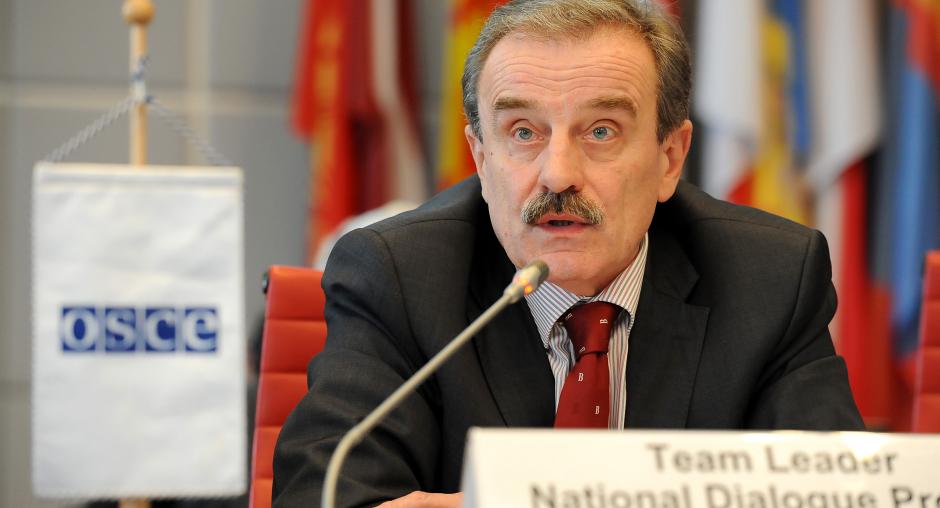Leader of OSCE National Dialogue Project in Ukraine presents recommendations to Permanent Council

VIENNA, 30 April 2014 - Ambassador Hido Biščević of Croatia, Team Leader of the OSCE’s National Dialogue Project in Ukraine, addressed the OSCE Permanent Council today. He presented recommendations on how the OSCE can contribute to social cohesion and tolerance amid the current crisis.
The project was implemented over a four-week period from late March at the request of the Ukrainian authorities. Experts were deployed to Odesa-Kherson, Kharkiv-Luhansk, Dnipropetrovsk, Donetsk, and Lviv. They spoke to a wide range of people from state institutions and civil society to assess their views and concerns and to identify entry points for the OSCE dialogue facilitation.
“People in Ukraine share many concerns, regardless of where they live, what language they speak, how old they are, or what socio-economic position they hold,” said Biščević. “In that sense, the challenge of dialogue is as much tapping into commonalities as it is to bridge differences.”
He said many interlocutors favored some form of decentralization, together with stronger institutional links between government and civil society and greater inter-regional co-operation.
“The primary recommendation is for the OSCE to promote and support a broad-based national dialogue in the context of the constitutional process in Ukraine,” said Biščević. He stressed that the OSCE can merely provide assistance in a process that has to be fully owned and led by Ukrainians.
OSCE support could take the form of organizing expert meetings in Kyiv, which would generate input for the draft constitutional amendments, he said. At the local and regional level, the OSCE could support a process of public consultations to gather people’s concerns and expectations with regards to the constitutional process and the future of the country, he recommended.
Biščević also recommended that the OSCE facilitates dialogue as a means of de-escalation at the local level. This could include, for example, the Special Monitoring Mission helping in the peaceful handover of illegally occupied buildings and public spaces.
He also highlighted the need to strengthen national cohesion in the long term. The OSCE could organize activities, including through the OSCE Project Co-ordinator in Ukraine, bringing different segments of Ukrainian society together to promote people-to-people contact.
“I am convinced that stability, progress and prosperity in Ukraine can only be enhanced by the willingness of people to listen and to talk to each other,” concluded Biščević.
The National Dialogue Project in Ukraine was implemented by the OSCE Project Co-ordinator in Ukraine. A core team of five people was based in Kyiv and five teams of two experts each were deployed to locations agreed in consultation with the Ukrainian Ministry of Foreign Affairs.
The OSCE Permanent Council is one of the main regular decision-making bodies of the Organization bringing together representatives of all 57 OSCE participating States. It convenes weekly in Vienna to discuss developments in the OSCE area and to make decisions.
